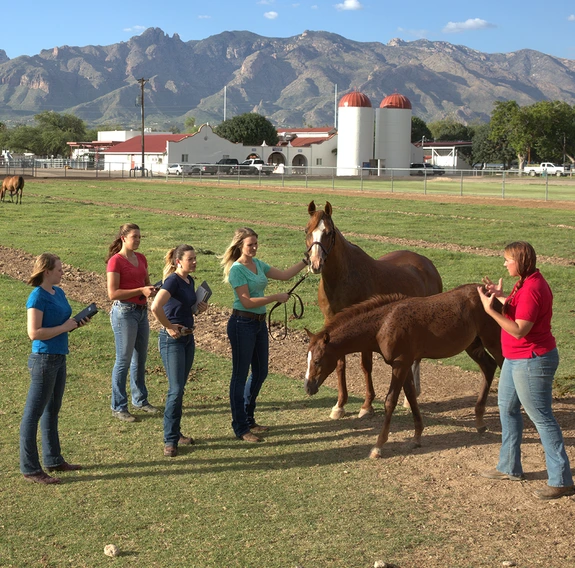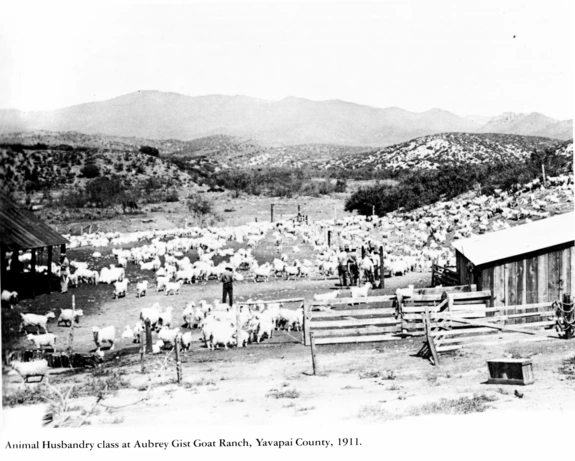
About
Founded in agriculture, rooted in life.
We are engaged in research and teaching across the state of Arizona. We explore the intersection of people, animals, medicine and food - from developing safe, sustainable food production practices, to preventing and treating infectious disease, to creating innovative biotechnology, and more.
The University of Arizona School of Animal and Comparative Biomedical Sciences (ACBS) is housed within the College of Agriculture, Life and Environmental Sciences (CALES). Through several robust undergraduate, graduate and research programs, ACBS is a leader in the study of animal science and production, foodborne and infectious diseases and biotechnology.
We take a One Health approach to research and instruction - that is, we recognize that human health is inextricably linked with animal and environmental health, so an interdisciplinary approach is necessary to solve the complex challenges we face.
Our students have the opportunity to investigate these connections from a variety of perspectives, including animal production and industry, animal health and welfare, microbiology and biotechnology. They work with industry and research leaders from ACBS as well as other schools and departments within CALES, like the School of Plant Sciences, the Environmental Science department, and the School of Nutritional Sciences and Wellness. The well-rounded, interdisciplinary education they receive gives them the knowledge and experience they need to launch successful careers and prepares them to make a positive impact on their communities and the wider world.
Our researchers are engaged in work ranging from the prevention of foodborne illness by advancing food safety practices across the food system, to improving reproductive, fetal and metabolic health, to preventing and treating infectious disease, to providing necessary biocuration support for biologists worldwide. They particularly focus on translational approaches that produce novel treatments and technologies.

Our history
The School of Animal and Comparative Biomedical Sciences has its roots in animal husbandry, which has been part of the University of Arizona since its earliest days in the 1890s. Cattle formed the initial research focus, with significant work on optimal rangeland and forage management and cattle feeding systems that continue today. From there, the department expanded into sheep, goats, pigs and poultry, as well as expanding to include research in animal pathology and nutrition.
Over the next century, livestock continued to play a significant role for Arizona’s economy, and we became an internationally recognized authority on feeding and caring for cattle – particularly in hot, arid climates – developing vaccines, parasite prevention procedures and feeding and cooling techniques that would become standard throughout the industry. As food production, processing and storage became more mechanized in the 1950s and 1960s, we developed programs in food science and safety, which produced pioneering research into milk pasteurization to prevent salmonella poisoning. We also extended our educational offerings to include programs in veterinary science and a racetrack management program that was unique in the U.S. In the latter decades of the century, we began applying lessons from our work with animal biology to better understand human health and help develop new methods of prevention, diagnosis and treatment.
As we move further into the 21st century, we remain firmly grounded in our commitment to empower animal agriculture and recreational groups with world class education and research; to maximize the efficiency and safety of our food system to accommodate a changing climate and growing population; and to investigate the connections between humans and animals to promote the health and welfare of both.

